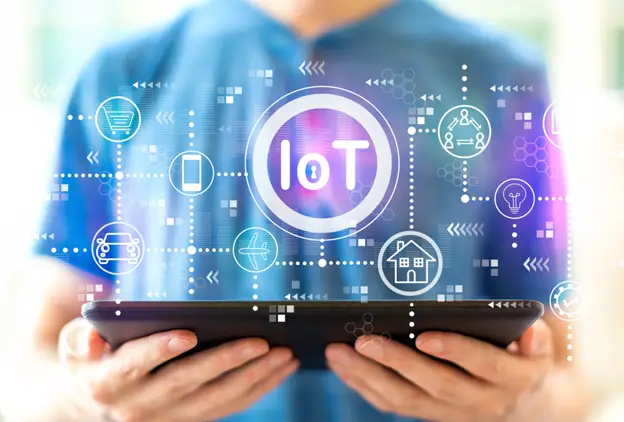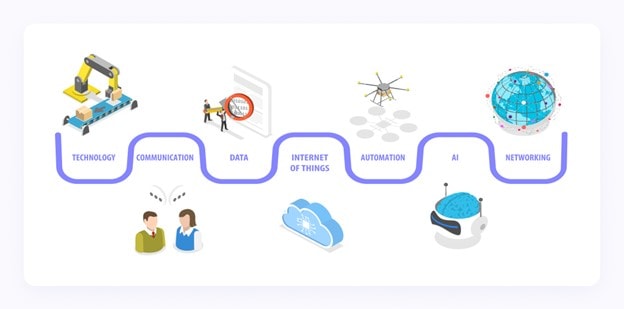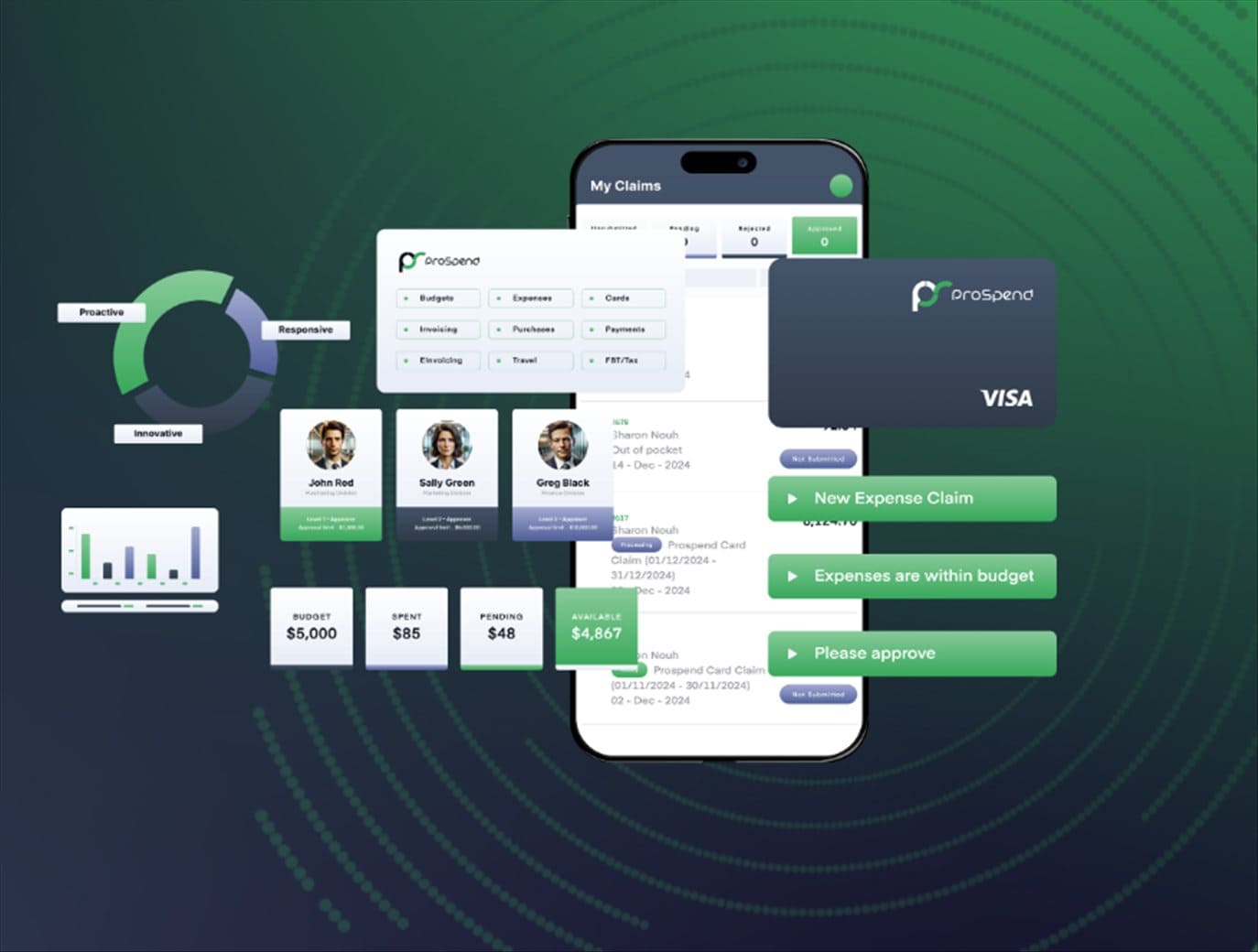Note: This is a guest post written by Louie Nelson – If you want to gain a clear understanding of IoT and how you can benefit from IoT development services implementation, we will be glad to assist you, share valuable insights, and give prominent examples of how IoT drives innovations.
For companies striving to establish or maintain a position as a market leader, it is crucial to consider embracing IoT solutions. Developing IoT services presents a captivating opportunity to elevate your business. Get ready to embark on an exciting journey filled with endless possibilities. Geniusee, an IoT software development company, is here to reveal IoT potential for you.

The Internet of Things (IoT) is all about connecting physical objects, like devices, to exchange data and make our lives easier. It involves smart objects, advanced analytics and has applications in various areas. IoT is a game-changer that enhances human-device interaction and improves overall quality of life.
How does IoT work?
To comprehend the fundamentals of IoT, it’s essential to grasp how it operates. IoT systems consist of four key components:
- Sensors. Embedded sensors within devices collect and transmit data.
- Connectivity. Data is transmitted through a shared network.
- Data Processing. The collected data is processed, including tasks such as storing, analyzing, and transmitting.
- User Interface. A user interface allows interaction between the end user and the IoT application.
IoT across the industries

The potential of IoT technology spans across various sectors, as highlighted in a report by Statista, which predicts that by 2030, there will be approximately 50 billion connected IoT devices. As this technology continues to increase globally, certain industries are at the forefront of investing in IoT, reshaping our lifestyles and work environments.
Agriculture
According to Statista, the global IoT market size for agriculture was $14.79 billion in 2018 and is projected to reach nearly $30 billion by 2030. Smart agriculture, enabled by IoT solutions, utilizes sensors to collect environmental and machine data, empowering farmers to make informed decisions across various aspects of their work, from livestock management to crop farming.
Key IoT Use Cases in Agriculture:
- Agricultural Drones: Equipped with sensors and cameras, drones aid in imaging, mapping, and surveying farms, performing tasks such as crop monitoring, pest control, and planting.
- Greenhouse Automation: IoT sensors provide real-time information on greenhouse conditions, including lighting, temperature, soil conditions, and humidity, allowing for precise control and optimization.
- Climate Monitoring: Weather stations and smart farming sensors collect environmental data, aiding in climate mapping, crop selection, and enhanced productivity.
- Livestock Monitoring: IoT sensors track livestock, facilitating efficient livestock management and improved production control.
Energy
The value of IoT in the energy market was $20.2 billion in 2020, with an expected increase to $35.2 billion by 2025. IoT is revolutionizing the energy sector across generation, transmission, distribution, and customer interactions.
Notable IoT Applications in Energy:
- Remote Asset Monitoring and Management: IoT enables the monitoring and management of remote assets, optimizing their performance and reducing maintenance costs.
- Process Optimization: IoT solutions help streamline energy processes, improving efficiency and reducing waste.
- Grid Balancing: IoT assists in balancing energy supply and demand in real-time, ensuring stable and reliable grid operations.
- Load Forecasting: IoT-based load forecasting helps energy companies plan and optimize their resources more effectively.
- Smart Decision Making: IoT data analytics and real-time insights empower energy companies to make informed decisions, leading to improved operations and customer experiences.
- Innovative Power Solutions: IoT enables the integration of renewable energy sources, energy storage systems, and smart grids, paving the way for sustainable energy solutions.
Finance
Finance IoT is increasingly gaining traction in the finance industry, with secure financial transactions being managed through connected devices. This technology allows for accurate risk assessment and offers personalized services based on comprehensive customer data.
Benefits of IoT in Finance:
- Cultivating Good Financial Habits: Connected devices assist users in developing healthy financial habits, curbing excessive spending, and promoting financial well-being.
- Enhanced Banking Experience: IoT enables interactive credit cards and automates business processes, delivering an improved banking experience for customers.
- Personalized Services: Banks can leverage IoT sensors and data analytics to gather more information about customers, enabling tailored services and a deeper understanding of their financial behaviors.
- Automated Processes: IoT streamlines and automates various financial processes, increasing operational efficiency for banks and enhancing customer satisfaction.
Manufacturing
The manufacturing industry has been a frontrunner in IoT investments, driving what some refer to as the fourth industrial revolution. Industrial Internet of Things (IIoT) solutions revolutionize manufacturing operations and efficiencies.
Key Applications of IoT in Manufacturing:
- Production Flow Monitoring: IoT enables real-time production flow monitoring, optimizing processes, reducing waste, and minimizing work-in-progress inventory.
- Remote Equipment Management: IoT facilitates remote tracking and maintenance of equipment, ensuring optimal performance and reducing downtime.
- Condition-Based Maintenance: IoT notifications based on equipment conditions enable predictive maintenance, minimizing disruptions and optimizing machine availability.
- Supply Chain Optimization: IoT solutions track vehicles, assets, and inventory, improving efficiency across manufacturing and supply chain operations.
- Real-Time Visibility: IoT provides real-time visibility into manufacturing processes, enabling proactive decision-making and faster response to issues.
- Fleet Management: IoT assists in managing fleets by monitoring vehicle health, optimizing routes, and reducing fuel consumption.
Retail
Retail IoT technology offers retailers opportunities to reduce operational costs and enhance customer experiences through innovative use cases and data-driven insights.
Benefits of IoT in Retail:
- Improved Customer Experience: IoT leverages data from surveillance cameras and social media to predict customer behavior accurately, enabling personalized and engaging experiences.
- Enhanced Supply Chain Management: GPS sensors and RFID tags provide end-to-end visibility of product movement, improving supply chain efficiency and reducing stockouts and shrinkage.
- Smart Inventory Management: IoT automates inventory tracking and visibility, optimizing procurement planning and reducing stock imbalances.
- Automated Checkout: IoT solutions automate and personalize the checkout process, improving customer satisfaction and streamlining operations.
- Fully Automated Stores: IoT-integrated stores allow customers to pick up items and automatically process payment, leveraging technologies such as facial recognition and seamless mobile interactions.
Logistics
IoT transforms logistics operations, enabling cost savings, efficiency improvements, and enhanced safety measures.
Benefits of IoT in Transportation and Logistics:
- Cost Savings and Increased Profitability: IoT-driven optimization of routes, fuel consumption, and asset management leads to cost savings and improved profitability.
- Operational Efficiency: IoT provides real-time visibility into supply chain processes, enabling efficient fleet management, reduced congestion, and enhanced operational performance.
- Safety Enhancements: IoT technologies enable real-time tracking of vehicles, ensuring safety compliance and proactive maintenance.
- Improved Customer Service: IoT solutions enable real-time shipment tracking, transparent delivery updates, and streamlined logistics operations, enhancing the overall customer experience.
- Fleet Management: IoT assists in monitoring vehicle health, optimizing maintenance schedules, and improving fleet utilization.
- Warehouse Management: IoT technologies enable automated inventory management, optimizing storage space and facilitating efficient order fulfillment.
The Importance of Related Services in IoT
The Internet of Things (IoT) development relies heavily on integrating various services and technologies. In fact, some of these services are so interconnected that they cannot be separated from each other. Below we described the critical services that play a vital role in the IoT ecosystem.
Blockchain
Blockchain technology enables secure and decentralized data transfer from IoT devices, eliminating the need for a central control system.
Machine Learning (ML) and MLOps
ML models learn to predict future digital interactions by analyzing past user behavior and identifying patterns. This allows for more personalized and efficient IoT experiences.
Artificial Intelligence (AI)
AI plays a crucial role in IoT by collecting, transmitting, and storing data. It also utilizes data analytics applications to make intelligent decisions based on past experiences and future predictions.
Big Data
Big data is fundamental to IoT as it simplifies analyzing and storing large volumes of processed data. The speed, volume, and variety of big data contribute to valuable insights and informed decision-making.
When selecting a software development company for IoT projects, it is essential to partner with a highly experienced tech vendor. IoT application development requires extensive experience and expertise. At Geniusee, our development teams have successfully tailored over 100 projects, with over 15% of our portfolio dedicated entirely to IoT product development. We specialize in both industrial and consumer IoT solutions, with additional custom IoT solutions that complement the main offerings. Join us on the way of innovative implementation to boost your project and significantly increase ROI!






